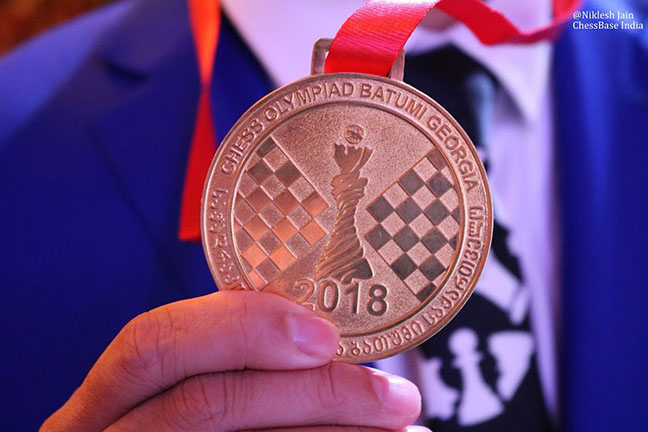 Guyana shone brightly at the 2018 Chess Olympiad in Batumi, Georgia. After the dust had settled, and the analyses were considered, we emerged with a triumph of hope for our foremost chess aspirants. It represented a noble start for those men and women who played their first Olympiad.
Guyana shone brightly at the 2018 Chess Olympiad in Batumi, Georgia. After the dust had settled, and the analyses were considered, we emerged with a triumph of hope for our foremost chess aspirants. It represented a noble start for those men and women who played their first Olympiad.
From all that I have heard and read, the experience was as educational as it was hectic. Each day, tactics had to be scrutinized and reworked to suit the occasion, depending on who the opponents were going to be. For example, in order to attract additional points for the championship, some competitors preferred to place their stronger players at the bottom of the playing boards, rather than at the top where they belonged. There is no unbreakable rule which determines that a player should participate according to his or her FIDE rating. Switching up the players meant they might not face their strongest competitors, and therefore could gain the desired points. One prominent team even trained two members to only play the black pieces. The strategy was effective.
It is my understanding the Guyana strategy was based on the following principle: boards 1 and 2 should go for the wins, and boards 3 and 4 should engineer draws. Naturally, if a victory became evident on boards 3 or 4, then by all means the player had to take it, as Loris Nathoo and Glenford Corlette did against Ethiopia.

